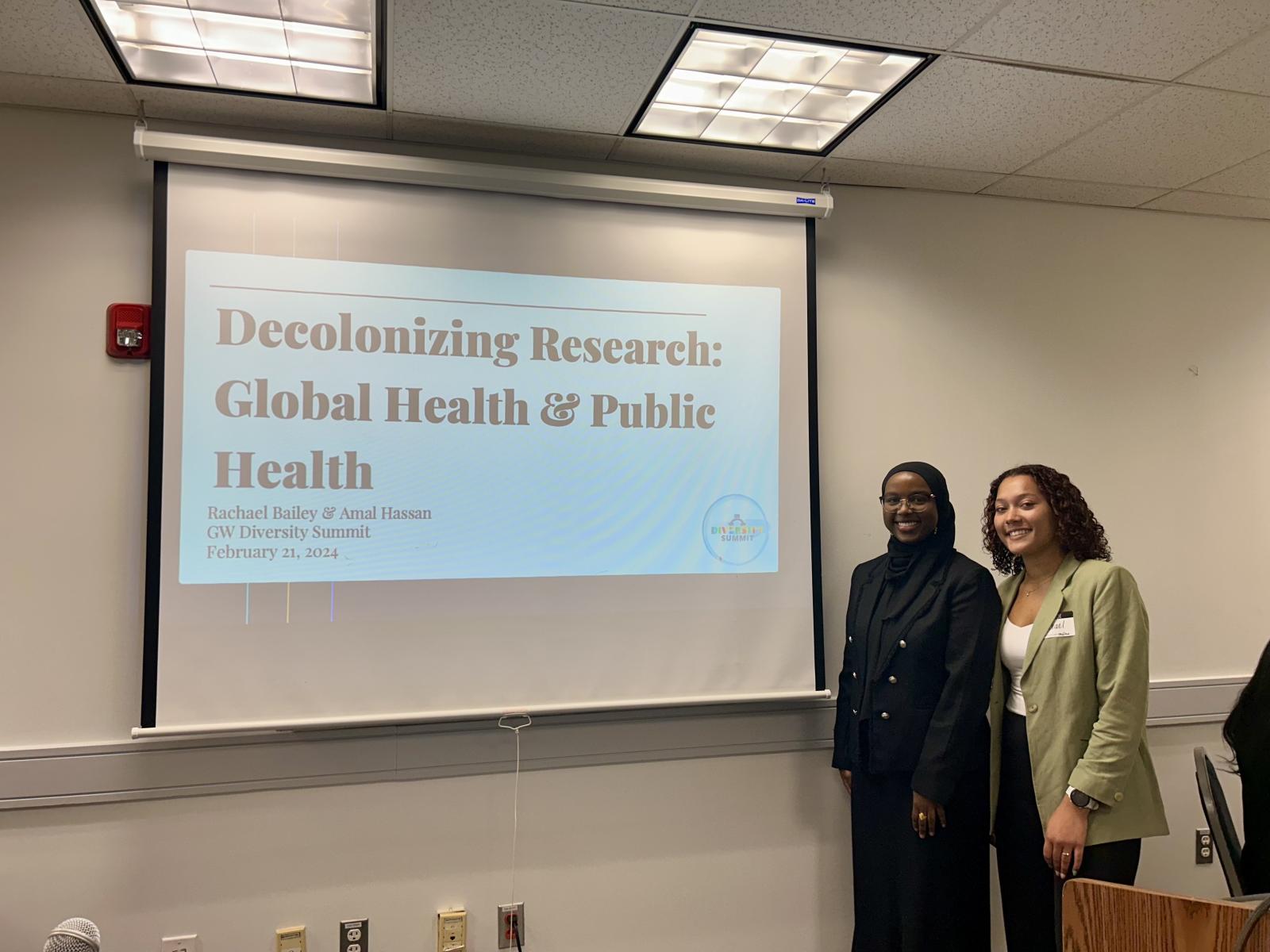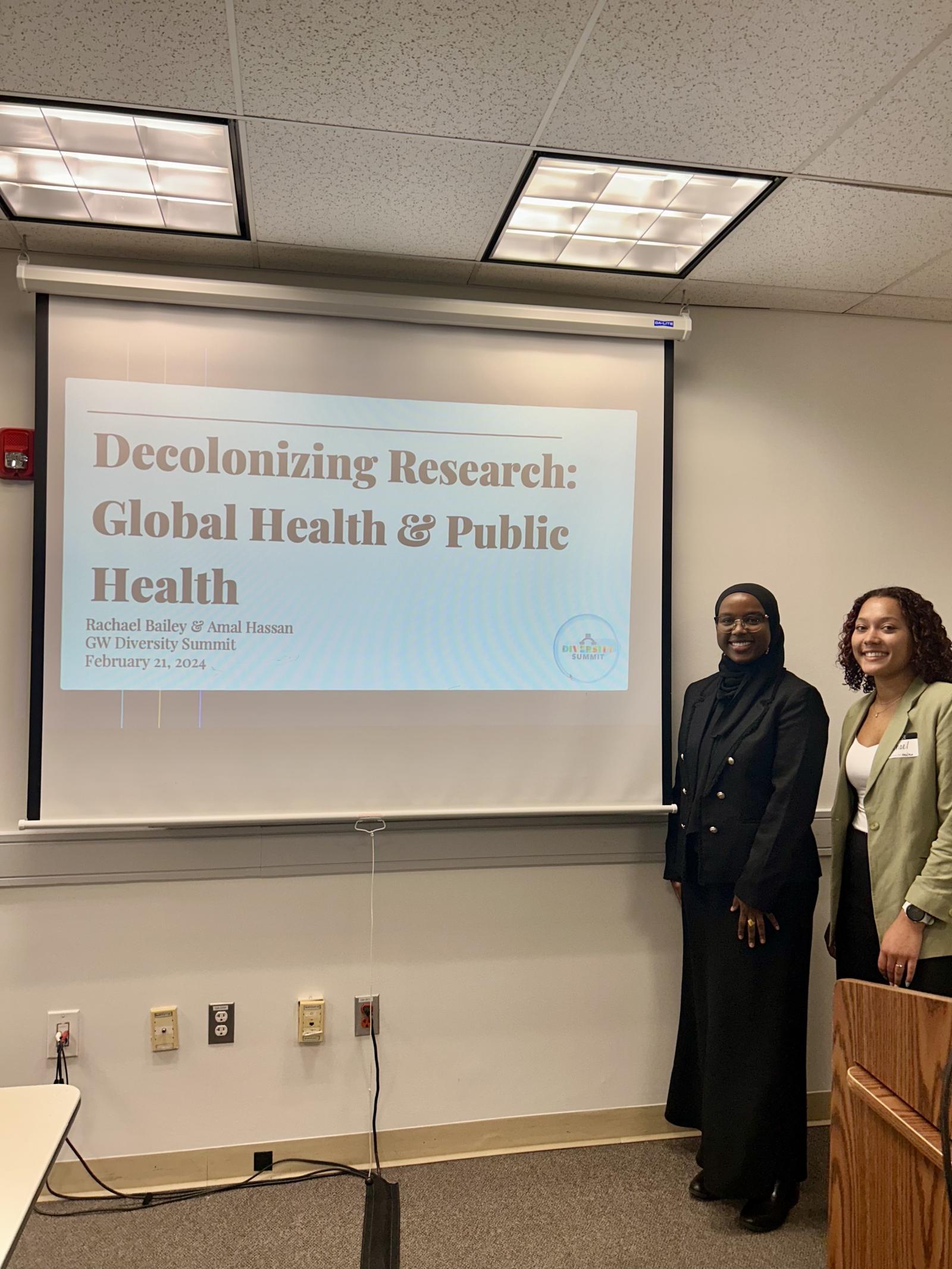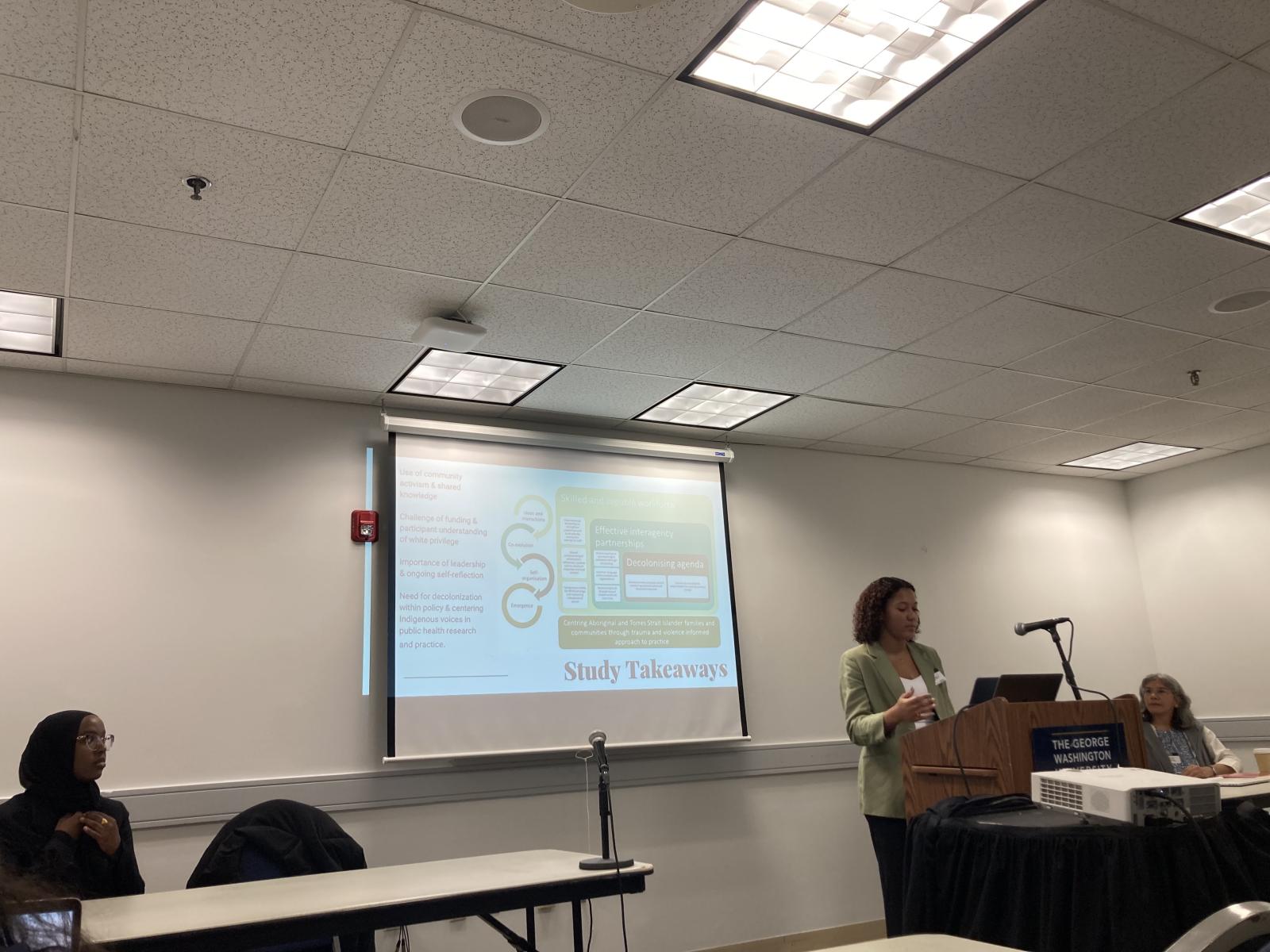The GW Diversity Summit is an opportunity for students, faculty, and the community to form new knowledge related to current events impacting the field of diversity, equity, and inclusion. One session, titled "Decolonizing Research in Global and Public Health" was planned by two of our own MCH students: Rachael Bailey and Amal Hassan. The session focused on how community-based or participatory research methods can be used to decolonize public health and amplify the voices of marginalized communities in both domestic and international settings. Through group discussion, case study examples, and an expert panel, participants gained an understanding of what decolonization means in the context of academia and how these techniques can be applied to their own research.
Decolonized research can change the narratives within public health to identify the colonial underpinnings, disrupt the deeply entrenched power dynamics within global health program planning and implementation, and deconstruct the superiority and privilege of Western/colonial thought and approaches.
Here are what Rachael and Amal hoped students would gain from this event.
"While the concept of 'decolonization' is very broad, it’s my hope that participants use this workshop as a way to reflect on how their own biases and positionality can affect their research, and are further encouraged to be a part of the global effort working to amplify indigenous voices in public health."
Rachael Bailey
MCH Graduate Student
"In this session, I aim to shed light on the unsettling reality of how colonialism has impacted global and public health. While decolonizing research and academia requires significant systemic change, it all starts with introspection. My goal is to showcase the work of indigenous scholars and experts from the GW community and offer our audience members a chance to reflect on their positionality. I hope to empower them to incorporate a decolonial framework in their academic careers and beyond."
Amal Hassan
MCH Graduate Student
The objectives of the session included:
- Dismantling structures of coloniality (such as racism, sexism, and homophobia)
- Achieving equitable practices through collaboration with local communities
- Co-producing knowledge with local communities at center
- Positioning indigenous/local practitioners as research leaders
Rachael presented a case study about the implementation of a decolonization approach and impact on trauma and violence-informed care within Indigenous communities in New South Wales, Australia. Approaches used were integrating healthcare workers and community activists to improve healthcare delivery by acknowledging the holistic nature of health, as well as using "yarning" - an indigenous research method in which the "interviewee" constructs their own narrative.
Next, two panelists joined the conversation. The first was Dr. Ashwini Tambe, Director of the School of Women's Gender and Sexuality Studies (WGSS). Her book "Codes of Misconduct" details the narratives of sex workers in early 20th century Bombay. She said that decolonization is not new, even if the term is relatively new, and that it's not just resisting formal political rule but the legacies of colonial rule and how it's shaped knowledge structures. For example, in the U.S. the most troubling legacy of colonization is slavery and still permeates our colonization today. The powerful don't often study the marginalized. Coming from a history background, she detailed how to read archival responses in the decolonial perspective:
- Stay vigilant about the motivations for producing knowledge about marginalized groups
- Interrogate the methods of extraction in research methods
- Question the conclusions of the research and ask if these conclusions would have been the same if from the marginalized group's perspective
- Trace how these findings were circulated and contextualized
The second panelist was Dean Dayna Matthew of the GW Law School. She confessed her history in the law profession meant that "lawyers don't engage with communities, they control them." But she was later taught Community-Based Participatory Research (CBPR) methods that helped her form the Equity Center at the University of Virginia and then the Equity Institute at GW. Some principles she shared:
- Ask and answer the questions the community actually wants to know about
- Leave a benefit behind to the community
- Pay researchers/community members to acknowledge the co-creation of research & knowledge
She reminded the students that colonization continues to this day, especially in research and medical institutions. Going through the history of institutions and the community is critical to see how colonization has infiltrated these organizations. We need to compel these institutions to be responsible for its decolonization and reckoning with the trauma they have inflicted on communities. At GW, the Equity Institute is supporting professors who value decolonization and research by promoting their tenure, awarding equity-focused research, and bolstering scholars who could benefit from GW infrastructure. She said D.C. is one of the most segregated and inequitable cities in the country, so GW should be at the forefront of addressing this issue.
We are so proud of our MCH students for curating this timely and relevant event!







